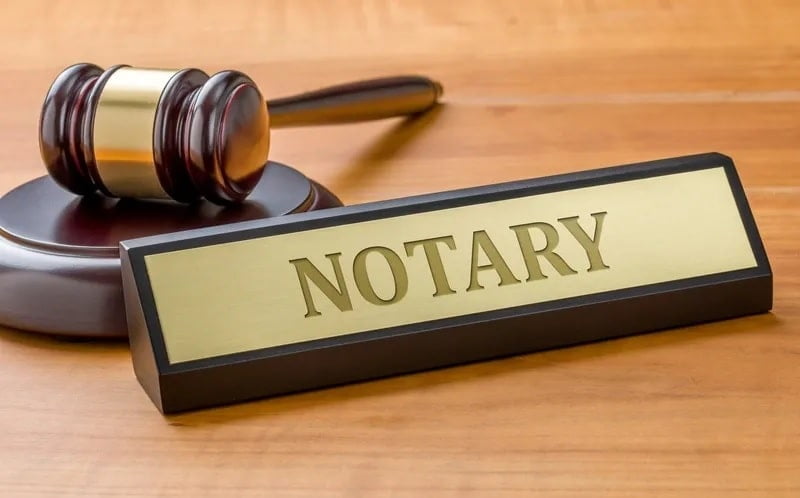Notarization
Notarization is the process where a Notary Public signs his signature and affixes his individual seal on a document after witnessing signatures or authenticating documents.
CAAO or NP?
The first question we always ask a client who comes to us is where will the document be used.
If the client says the document needs to be used in China, then the chances are that the services of a China Appointed Attesting Officer should be required instead. On the other hand, if the client says that the document is to be used anywhere else in the world, then we (Notary Public) would be able to assist.
Notarial Certificate – Yes or No?
Most of the time the client would want an identification document (eg passport or identity card) notarized, in which case we would then find out whether the client would want the document notarized with a notarial certificate or not. Whilst a document is considered notarized with or without a notarial certificate, the deciding factor usually depends on the final user of the document and proper enquiry should be made. Another factor is costs as it will normally be cheaper to use a notarial certificate if the number of documents is substantial as all the documents can normally be bundled under one notarial certificate. A third factor is whether that particular document has more than one page, in which one, a notarial certificate is usually preferred.
Original or certified?
There are normally no issues on the originality of a document if the subject document that needs notarization is a passport, an identity card or a certificate. In most cases, it is also possible to notarize a certified copy of these documents. However, clients sometimes bring us documents which have been printed directly from the internet (eg e-copies of bank statements), in which case, we would normally advise the client as a safe option to get the same certified by the issuing bank as an original first as they may not be accepted.
Deeds
Power of Attorneys are documents we regularly attest. For individuals, it is relatively straightforward as no authorization is required. When it comes to companies, it gets more complicated as board resolutions are required for confirming the authority of the signatories. Updated company searches with the Companies Registry will need to be conducted and updated Register of Directors and Register of Members will need to be obtained from the Company Secretary. Further, as Power of Attorneys are deeds, the relevant laws of Hong Kong for executing deeds will need to be followed and the common seal of the company may need to be affixed to the Power of Attorney where necessary.
For documents which are not deeds (eg commercial agreements, sale and purchase agreements, affirmations/affidavits and declarations), whilst a board resolution will still be necessary in most cases, the common seal will not be required.
Apostille
Some documents which have been notarized by a Notary Public are required by the signatory countries and territories to the Hague Apostille Convention to be further authenticated by apostille to verify the identity, signature and seal of the Notary Public. The High Court of the Hong Kong SAR is responsible for issuing apostilles. Getting an apostille is straightforward and it normally takes 2 days for the court to issue an apostille.
Legalization
On the other hand, for non-Hague Apostille Convention countries or territories, documents which have been notarized by a Notary Public will need to be legalized by the embassy of the relevant country or territory in Hong Kong before they can be used in that country or territory.
Whilst getting a document apostilled is straightforward, it is more complicated to get documents legalized properly by an embassy. The reason is because unlike apostille which is administered by the Hong Kong SAR High Court, the requirements for legalization for each embassy is different including whether a notarial certificate must be used, whether documents must be separately notarized beforehand or can be grouped under the same notarial certificate, whether a certified copy of a Hong Kong SAR government document must be obtained and used, the contents of authorization letters and how they should be signed, whether pre-approval of documents should be obtained to avoid rejection at a later stage, what specific and standard wordings should be added to documents to avoid rejection, what supporting document should be submitted and the list goes on.
We therefore prefer to handle the whole process from notarization to apostille (if necessary) to legalization to avoid the document from being rejected by the embassy because of the way it was notarized in the first place.
What documents do I have to bring?
In most cases, please bring the original/certified documents and the signatory’s original identification documents. It’s best if you can send us the soft copy in advance so that we can make last minute changes if necessary.
If you have any questions, please give us a call at [ ] or email us at
[email protected].



Recent Comments